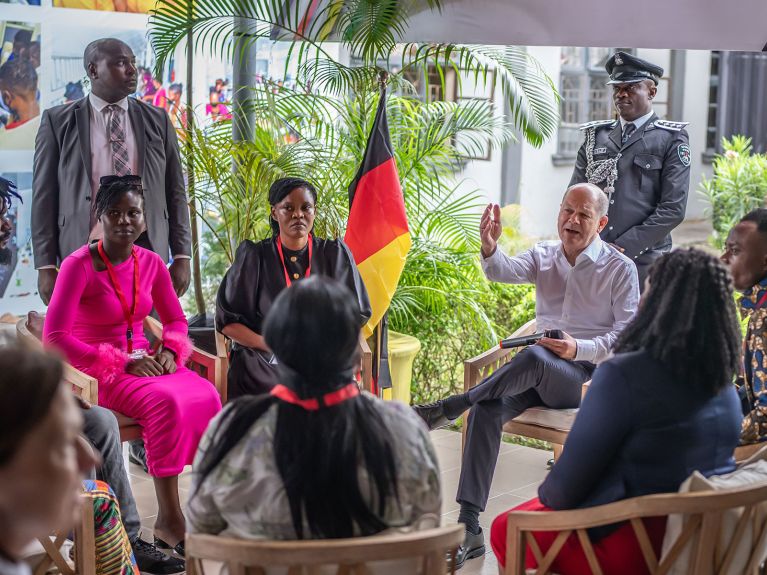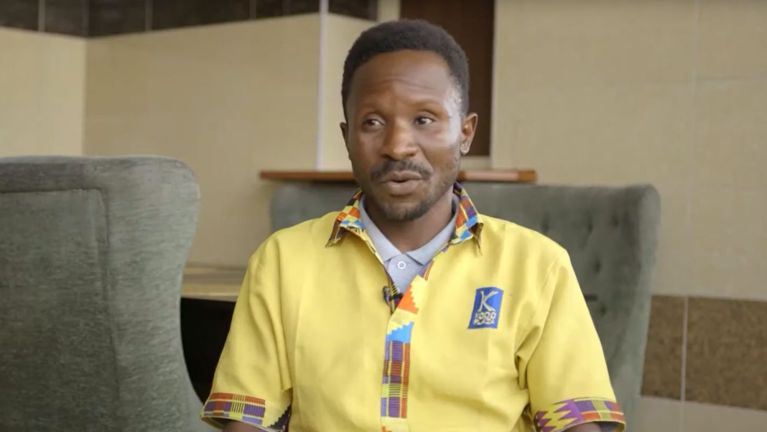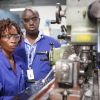“Many people turn their lives around for the better”
Sandra Vermuijten runs advice centres in Nigeria. The centres provide support for returnees and people wishing to work in Europe.

Should I work or do an apprenticeship in Germany? Or do training courses in Nigeria? Help with answering these questions is provided by the Centres for Migration and Development. We talked to Sandra Vermuijten, head of the centres in Nigeria.
Ms Vermuijten, what is the job of the Centres for Migration and Development in Nigeria?
The ZME build on the Migration for Development program, which started implementation in Nigeria in 2018. Since then, we have been supporting people returning from Germany with reintegration into the Nigerian labor market and offering opportunities to local population to find employment or start their own business in Nigeria. We also advise people who are interested in regular migration to Germany, Europe or other West African countries. Since the launch of the ZME in 2023, our focus has been even stronger on this aspect.
Dieses YouTube-Video kann in einem neuen Tab abgespielt werden
YouTube öffnenThird party content
We use YouTube to embed content that may collect data about your activity. Please review the details and accept the service to see this content.
Open consent formHow many advice centres are there in Nigeria?
The first NGCs were set up in Lagos, Abuja and Benin City. We work closely with the Nigerian Ministry of Labor and Employment and its Migrant Resource Centers (MRC). Lagos has more than 20 million inhabitants. So we opened a second MRC contact point there. Today, we also have two locations in Benin City. In Abuja, 20 000 people came to the NGC for advice in 2021 and 2022. More than 60 percent of them live in Nyanya, on the border between Abuja and Nasarawa State. The MRC opened another center there in February 2024, supported by the NGCs. We want to create a stronger network of public, private and civil society organizations to bring the information closer to the people. We want a migration office in every Nigerian state, working with state and local governments.

What has been the response to the centre in Nyanya so far?
Even before the opening, people were queuing up when they saw the staff. Since the opening, hundreds of young people have come for advisory services. But not all our services are provided in the centers, they are the first point of contact. Then we refer the clients to other organizations for training and further education.
Dieses YouTube-Video kann in einem neuen Tab abgespielt werden
YouTube öffnenThird party content
We use YouTube to embed content that may collect data about your activity. Please review the details and accept the service to see this content.
Open consent formWhich training courses are on offer?
We offer trainings that are in demand on the Nigerian labor market but are also relevant for other regions. These include digital skills, for example in cyber security, digital pattern drafting, graphic design but also system administration and common office applications. We also offer training in the fields of renewable energy, construction, car mechanics and hospitality. We need to be able to offer a diverse portfolio, otherwise people will choose things that they don't really want or are not really suitable for them. We try to look for individual solutions - with success. Between 60 and 70 percent of our clients are able to significantly increase their income.

What prospects do Nigerians have who emigrate to Germany?
It depends on their language skills and educational background. Those with little German skills are more likely to find a job in the IT sector and maybe also in the construction or the hospitality industry. With the new German Skilled Immigration Act, there are more opportunities for training in Germany and learning the language there. I think the migration process has become more flexible. Migration is changing.
What advantages do the centres have for Nigeria and Germany?
There are many Nigerian migrant workers in the world, unfortunately some are exploited and fall victim to traffickers. This has led to a stronger focus on migration and the rights of migrant workers. Migration policy in Nigeria has become more prominent over the last five years. It is not only the advice centers that have gained importance, but also state level structures are more geared towards providing services on employment and migration. As far as Germany is concerned, I think that the centers contribute to sustainable economic development, skilled workers are urgently needed. Migration is a hot topic that is surrounded by many myths that need to be addressed. I think the discussion about skilled migration is very positive, as it benefits both sides.
Which clients do you remember particularly?
We have a YouTube channel that tells success stories. For example, there is a data scientist who completed training through us. He is now learning German and has already started working remotely for a German company. Another client is blind, he studied social work but couldn't find a job. He enquired about scholarships for Germany. We provided him with all the information he needed. But it was him - like all the other clients - who filled out forms, wrote applications and applied for his visa. He is now starting a Masters degree in Germany. Many women among the returnees have gone into fashion and founded their own companies. It has been a wonderful privilege to see so many people change their lives for the better.
_______________________________________
In selected countries, the German Federal Ministry for Economic Cooperation and Development (BMZ) funds Centres for Migration and Development. The centres are operated by the Deutsche Gesellschaft für Internationale Zusammenarbeit (GIZ) on behalf of the BMZ. Nigeria has advice centres in several locations. The centres, which are run by the Belgian Sandra Vermuijten, cooperate closely with the country’s Ministry of Labour.




